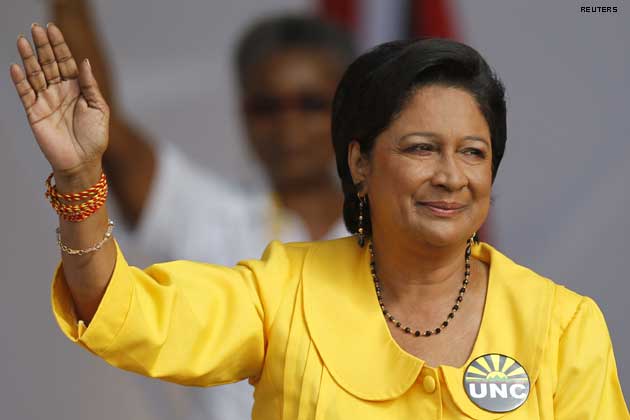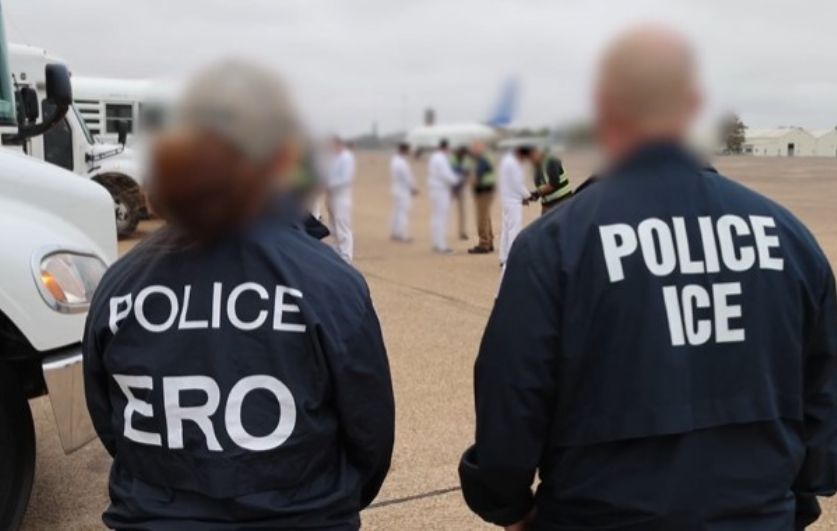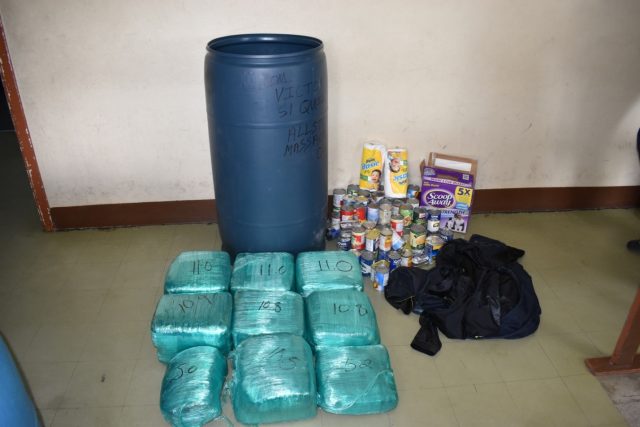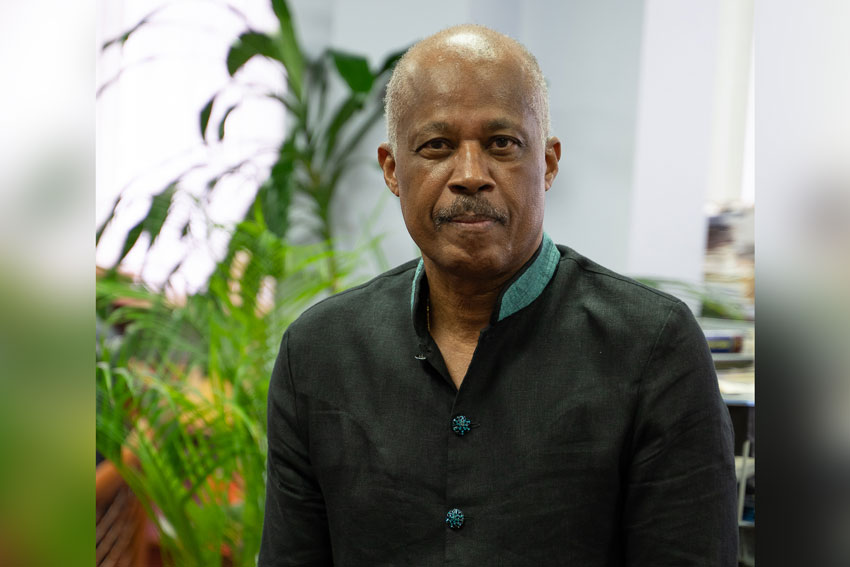Opposition Leader Kamla Persad Bissessar Wednesday welcomed the decision by the police to end the investigations into the so-called “emailgate” scandal that sought to link her and several other senior members of her then People’s Partnership government to a sinister plot to undermine the judiciary, the Office of the Director of Public Prosecutions and the media a few years ago.
“We knew these things were false from day one. It took almost five years to clear your name. Five years for my name to be cleared together with the other ministers who were said to be involved in a criminal conspiracy.
“Imagine they can do that to a sitting prime minister and sitting government ministers, what they can do to you, the ordinary man, Jane, Mary and Lella and ordinary Harry,” she said at a news conference here.
Acting Assistant Superintendent of Police, Michael Pierre, told a news conference that the “Office of the Director of Public Prosecution does not believe that a realistic prospect of conviction existed in relation to any identifiable suspect with respect to the offence of misconducts in public office or for any other offences against the laws of Trinidad and Tobago.
“In other words the evidence gathered did not reach the threshold required for any criminal charges to be recommended against any person,” Pierre said, adding this therefore brings an end to the investigation”.
In his detailed report of the investigation by the police, Pierre said that only one of those named in the email threads “surrendered his device to the TTPS cybercrime unit and it was interrogated.
“Representatives of the other persons named met with the police in order to facilitate the surrender of their devices for interrogation. This meeting was aborted before the interrogation of the devices was completed because of the failure of the relevant parties to agree to an arrangement suggested by the TTPS,” Pierre said.
On May 20, 2013, then Opposition Leader Dr. Keith Rowley told Parliament he had received 31 emails purporting to show correspondence between then prime minister Persad Bissessar, attorney general Anand Ramlogan, local government and works Minister Suruj Rambachan and security adviser Gary Griffith outlining the plot.
The ministers and Griffith, who is now the police commissioner, had always denied the allegation.
Attorney General Faris Al Rawi, speaking on a radio programme here Wednesday, said while he is in possession of correspondence sent by the Office of the Director of Public Prosecution, he must as attorney general remain impartial on the whole affair.
“I have received written correspondence quite properly from the Office of the Director of Public Prosecution. I cannot separate myself from the role of the AG right now. It would be improper of me to take a side in this matter.
“What I can say is the conclusion in the correspondence coming from the Office of the DPP is a very clearly written one which clearly says that the authenticity of the subject emails cannot be confirmed or denied and it goes on to say however, evidence gathered supported the fact that several of the events referred to in those emails can be confirmed as having actually occurred in the way and the time referred to in those emails”.
“I think that those two sentences in the conclusion say a lot,” Al Rawi told radio listeners.
But Senior Counsel, Israel Khan, who was among the lawyers representing Persad Bissessar in the matter, told a news conference that he would be asking that the DPP “request that the police set up a team of officers to investigate the now Prime Minister…whether he conspired with a person unknown or a person known in order to pervert the course of public justice.”
Pierre said in accordance with United States laws, the Federal Bureau of Investigation (FBI) also conducted an examination of the data received from the internet service providers “in answer to the warrant in order to filter out or remove any data outside of the exact parameters of the warrant.
“The information was then sent through the Central Authority of Trinidad and Tobago to the Trinidad and Tobago Police Service. The TTPS investigative team performed two separately assessments of the data which was provided,” he said, adding that the evidence was subjected to “full code test, which had two stages” adding “the first stage is the evidential stage in which the prosecutor must be satisfied that there is sufficient evidence to provide a realistic prospect of conviction”.
He said the second stage “is the public interest stage in which the prosecutor must go on to consider whether the prosecution is required in the public interest”.
Police Commissioner Griffith said the correspondence that had been “in the hands of the then Opposition Leader…were not legitimate emails.
“What was done was to verify what was put there actually came in on the accounts of the individuals questioned. But what was actually provide and given, those were never emails,” he told reporters.
Persad Bissessar told reporters that while there were no chances of legal action being taken regarding the whole incident, she believed public opinion in the coming months would be the better test.
She urged supporters “to keep your strength, keep your courage and know as we are in this major election season with two elections coming they will come with every trick in the book and every trump up charge….”
She said Rowley had lied in the Parliament “under the cloak of parliamentary privilege and parliamentary privilege means you cannot sue them….for the words they said in the Parliament. But you know it will be the court of public opinion that will have to judge him.
“It may not be a court of law with respect of this matter but it will be a court of public opinion…and the people of Trinidad and Tobago who will have to judge him,” she said to applause by supporters.




